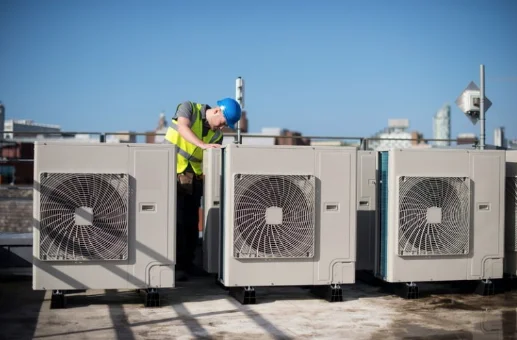Rooftop units (RTUs) are a common choice for commercial HVAC systems. Installed on the roof, these self-contained systems provide various advantages to building owners, facility managers, and inhabitants. In this blog, we’ll look at the benefits of rooftop commercial HVAC systems for business buildings.
Advantages of Rooftop HVAC Units
- Space-saving design: Rooftop units free up valuable internal space, making them excellent for buildings with limited floor area.
- RTUs: The nature of RTUs that is self-contained simplifies installation and maintenance.
- Energy efficiency: Modern rooftop units have good EER and SEER ratings.
- Reduced noise pollution: By placing the unit on the roof, noise is reduced, resulting in a more pleasant internal atmosphere.
- Improved indoor air quality: Rooftop units can be outfitted with modern air filtering systems.
- Flexibility and scalability: RTUs can be readily added or removed as building requirements shift.
- Rooftop units: They typically have lower upfront expenses than other HVAC systems.
- Enhanced security: Roof-mounted units limit the possibility of vandalism and tampering.
- RTUs zoning: Simplifying zoning by allowing for exact temperature control of individual zones.
- Long system life: Properly maintained rooftop units can endure for 15-20 years or more.
Additional Advantages
- Reduced ductwork needs
- Streamlined system integration
- Improved system reliability
- Compliance with the local construction codes and regulations
Choosing the Right Rooftop Unit
Consider the following factors:
- Building dimensions and layout
- Climate and weather conditions
- Energy-efficiency requirements
- Budgetary restraints
- Maintaining accessibility
Rooftop HVAC units are a practical and efficient alternative for heating, cooling, and ventilation in commercial buildings.

Ruby Stauffer is a prominent technology blogger known for her insightful analysis and in-depth reviews of the latest tech trends and gadgets. Her blog has become a go-to resource for tech enthusiasts seeking reliable information and expert opinions on the ever-evolving world of technology.

